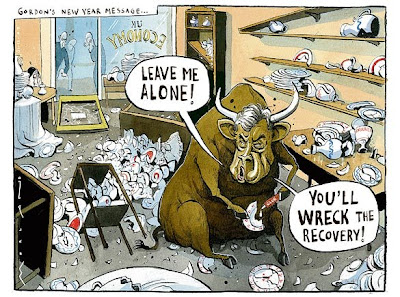Brilliantly insightful piece in today's Times by Rosemary Righter followed by a cartoon that Cameron should be using in every marginal in the country.
With thanks to Morten Moreland. Wonderful.



 Government figures show that more than a thousand people are killed each year as a result of speeding drivers. Each death affects dozens of families – mothers, fathers, aunts and cousins – as well as friends and colleagues. Speed-limiters prevent cars exceeding the speed limit on all roads. They produce less aggressive and calmer drivers, able to take more rational decisions as unrealistic expectations over timing are lowered, whilst eliminating road-rage and lowering both energy usage and CO2 emissions.
Government figures show that more than a thousand people are killed each year as a result of speeding drivers. Each death affects dozens of families – mothers, fathers, aunts and cousins – as well as friends and colleagues. Speed-limiters prevent cars exceeding the speed limit on all roads. They produce less aggressive and calmer drivers, able to take more rational decisions as unrealistic expectations over timing are lowered, whilst eliminating road-rage and lowering both energy usage and CO2 emissions.


 their prudence and self-sacrifice.
their prudence and self-sacrifice. ernment has yet to recognise the real problem and until it does, it is incapable of providing a solution. The government is – and always has been - part of the problem. Running around like headless chickens announcing daily policy initiatives which saddle the country with even more debt may make Gordon Brown feel happy, but it does not address the real problem. Until that happens we continue on the road to a deep and lasting depression. What is needed here is leadership and vision. As Jeremy Clarkson pointed out last week, Gordon Brown is incapable of either.
ernment has yet to recognise the real problem and until it does, it is incapable of providing a solution. The government is – and always has been - part of the problem. Running around like headless chickens announcing daily policy initiatives which saddle the country with even more debt may make Gordon Brown feel happy, but it does not address the real problem. Until that happens we continue on the road to a deep and lasting depression. What is needed here is leadership and vision. As Jeremy Clarkson pointed out last week, Gordon Brown is incapable of either. o implementation. The question we need answering is whether the very backing of the government’s highest regulatory authority at every stage of this disaster might have actually emboldened those banking executives to continue digging the hole in which we now find ourselves.
o implementation. The question we need answering is whether the very backing of the government’s highest regulatory authority at every stage of this disaster might have actually emboldened those banking executives to continue digging the hole in which we now find ourselves.